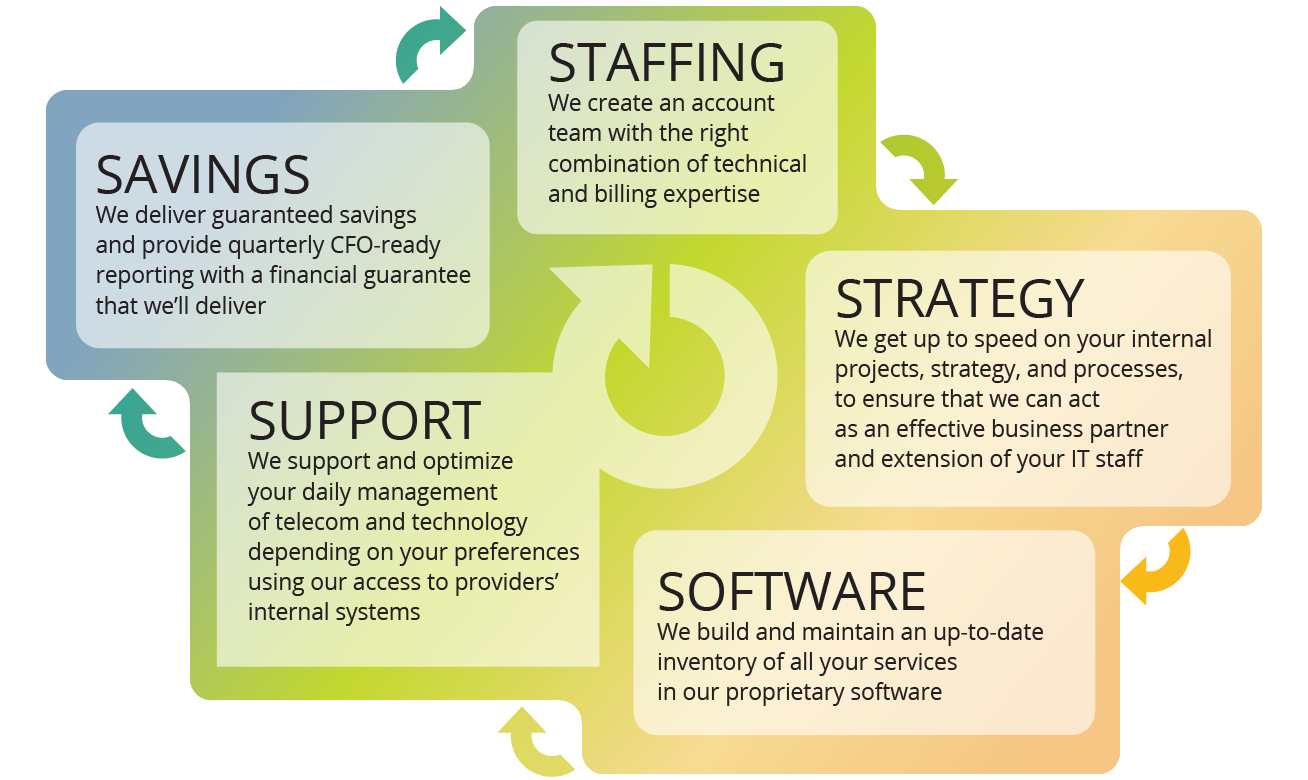From time to time, most organizations go through reviews of vendor expenses looking for cost reductions, and some will consider a Telecom Expense Management arrangement to help get a handle on these expenses.
The key benefits of basic Telecom Expense Management programs are:
- Reduction in long term expenses
- Most consultants are compensated as a percentage of savings on a project basis
- Consultants understand the complexity of working with telecom and technology providers
The problem? Knowledge transfer and ongoing assistance. After negotiations are done, many consultants move on leaving Information Technology and Finance departments to manage these services and contracts for the long term, creating a repeatable cycle every few years (more frequently if your organization is opening locations regularly). This frequently leaves organizations devoting more time and energy than they need to understand and manage these contracts and installations across ever changing priorities.
What’s the better approach to Telecom Expense Management?
IQ Wired calls this approach Telecom and Technology Service Management. We bring business intelligence to the process of buying and managing telecom and technology services. We understand that technology tools must be implemented and managed appropriately to align with our clients immediate needs as well as their strategic goals and objectives. Our optimization efforts provide guaranteed savings and create efficiencies that not only provide monetary savings but also time savings.

IQ Wired places a strong emphasis on humanizing telecom and technology, ensuring that we act as advocates for our customers to defend and protect their interests. Our extensive provider relationships and bench marking data enable us to negotiate the best pricing and contract terms. We take on the daily administrative functions associated with managing services and enable your teams to focus on initiatives that provide a larger impact for your organization.
What is Telecom Expense Management?
Telecom expense management (TEM) is the process of managing and keeping track of various wireless, voice and data services in order to understand and control total telecom costs. This term is usually applied to business customers that have significant telecom service provisions as part of their business processes, often tied to multiple locations utilizing services within the business.
In business, telecom expense management can be complicated. That is partly because of the wide array of telecom services offered by today’s innovative telecommunications companies and the complexity of the contract structure and invoices that are provided for those services. Factor in that telecom providers tend to have a regional presence, and the management of multiple vendors to serve your business locations grows in complexity very quickly.
If you image that a business has more than one voice platform for offices, more than one messaging platform for employees, and various data services including wireless, Ethernet and intra-office setups. That is going to require a somewhat sophisticated telecom expense management plan. Companies may also try to factor in all of their cloud software vendor costs from vendors such as AWS but frequently lack the means to proactively and easily navigate these complexities. Telecom expense management is a key way to control costs, to evaluate ongoing expenses, and to observe what happens to a company trying to create a “desired state” in terms of overall telecom services and functionality.

